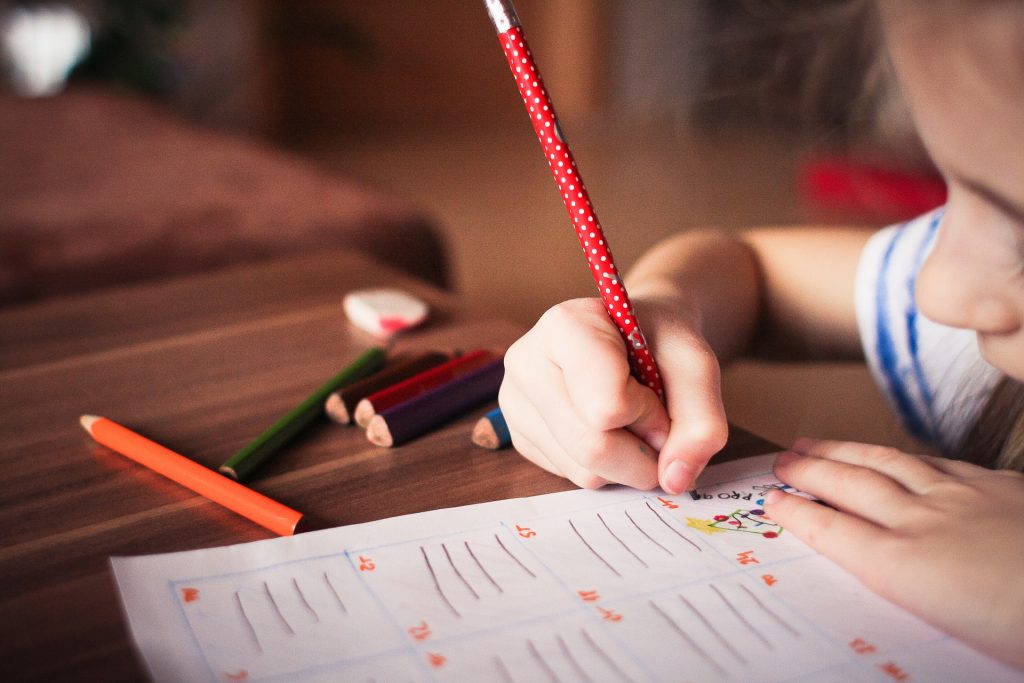Last month, we bought three current part-time Birkbeck students who are also parents together to talk about how they made the step into studying and how they’re managing studying while looking after their children under lockdown.
In this blog, We’ll hear what Liliana (Accounting and Management FDA), Fentezia (Film and Media BA) and Mohamed (Applied Psychology CertHE) have to say about how they’re managing juggling studying and childcare in this challenging time.
If you’re a parent thinking about studying, email us at getstarted@bbk.ac.uk for information and advice about starting a university course. Now, over to Liliana, Fentezia and Mohamed!
Thank you for agreeing to share your thoughts with us about studying while parenting. We know it must be a busy time! So, tell us a little bit about why you decided to come to Birkbeck and what you enjoy about your course?
Fentezia: I decided to come to Birkbeck due to the great reputation it had, and flexibility of learning in the evenings. I enjoy my course because a lot of the lecturers are already established in the film and media industry and you get a lot of insight in it through them. The students are also mature and most are returning to education and some have families so you have a lot in common with them.
Liliana: I first heard about Birkbeck at a family event in a university, I thought it was what I was looking for and the part-time option made it easier to make the decision to study for a degree as I thought to myself ‘How can I juggle having two children a part-time job and studying!’
Birkbeck has so many resources when it comes to study skills and I have been able to pass those skills on to my boys. Learning together and being able to find the answers to topics have made me more confident as a parent when helping my children with homework.
Mohamed: Studying Applied Psychology has really given me an insight into why people do the things they do. I enjoy the course because I get to learn more about people. This was really important to me coming from Sierra Leone, it helped me understand the conflict in my own country and why people act the way they do. I’ve also enjoyed the child development parts of my course where I’ve learnt more about how children grow and learn.
How do you normally juggle childcare and studying when you’re attending on campus lectures?
Fentezia: Luckily, I have family that can help and being part-time, I only study two nights a week. While my children are in school, I also take the time to do assignments.
Mohamed: Usually it’s no problem at all. As the classes are in the evening, I can look after the baby during the day (my son is only 19 months old) and swap with his mum in the evening. Sometimes it’s a challenge to do the academic work before class, but I manage to fit it around my other commitments.
Lilliana: I am very lucky because I have supportive parents that help look after my children in the evenings when I have classes. My dad is at home when my children get home from school and stays with them until I get home, he even cooks meals for us! When I study at home, I try to do it when they are at school or I will dedicate a Sunday morning to studying, I think it’s important for them to see my studying.
How are you finding parenting and studying during lockdown?
Liliana: In lockdown my time management skills have been put to the test, I’m working from home and have a collaborate session (a live workshop with other students and the lecturer) on a Tuesday evening, but I make sure I have a long break before I sit down to study. I try to study while they are getting on with schoolwork as I find this is the time when we are all studying which helps us focus. I don’t try to do a full school day with them, rather we are task-orientated and decide how long each task should take and allocate times – however, we also allow room for flexibility.
I give them at least three tasks on most days and it could be anything from getting a piece of homework done to vacuuming their room, this gives them a sense of accomplishment for the day. I have focused on teaching them essential skills like cooking and looking after themselves, I like to think I am preparing them for university life in the future. I also find time to go out for walks – this could be on my own or with my boys, it gives you clarity and a break from staying at home.
Fentezia: It has been challenging as I have taken on the role as governess without the patience of Mary Poppins! However, it has been nice to spend time with my children and see their progress. Sometimes I study while they do their learning, but it’s usually at night when they have gone to bed.
Parenting is harder because we have to do the domestic chores as well as home school and answer a million questions from our children, whilst also being followed around the house.
Mohamed: Staying at home has been good because it means I’ve got to spend more time with my son, but it has been hard because I can only really work when he is sleeping. Even when his mum is there, it’s difficult because there are lots of distractions.
Do you have any tips for other students who are also trying to juggle studying and parenting at the moment?
Fentezia: I would recommend PE with Joe Wicks he is now like a TV family member; the sports sessions help the kids burn excess energy. Home learning should be done in the morning when their minds are fresh and get them to read in the afternoon to give you a bit of (quiet) time to do some work.
Don’t forget to rest and eat well so that you have the energy to do your own work at night. Try not to get too stressed, stick to a good routine and set a bedtime for the kids.
I’m also Birkbeck’s Student Parents & Carers Officer, so if you are a student who is also a parent, email studentsunion@bbk.ac.uk to find out more.
Liliana: Take breaks and do activities together such as cooking and playing board games, it’s also important to do sports with your children; this could be a bike ride around London or just around the park.
Take time for yourself and do something you enjoy like reading a book or watching your favourite series. It’s okay to ask for help – email your teachers.
Mohamed: It’s important to find space to be alone and to have some quiet. Make arrangements with your partner to have that space.
Make sure that you reach out to get support, for example, charities or services at the university. Try your best, look for support, go to school but it can be a challenge sometimes!
Further information:


 The right of a child to an education is widely accepted as being a ‘good thing’. It is what some people describe as an ‘apple pie’ issue: something that is so obviously nice, and comforting, that no one could possibly object. But what the right to education means in practice is complicated and contested and inherently political. And nowhere are the underlying tensions as acute as in debates about home education.
The right of a child to an education is widely accepted as being a ‘good thing’. It is what some people describe as an ‘apple pie’ issue: something that is so obviously nice, and comforting, that no one could possibly object. But what the right to education means in practice is complicated and contested and inherently political. And nowhere are the underlying tensions as acute as in debates about home education.